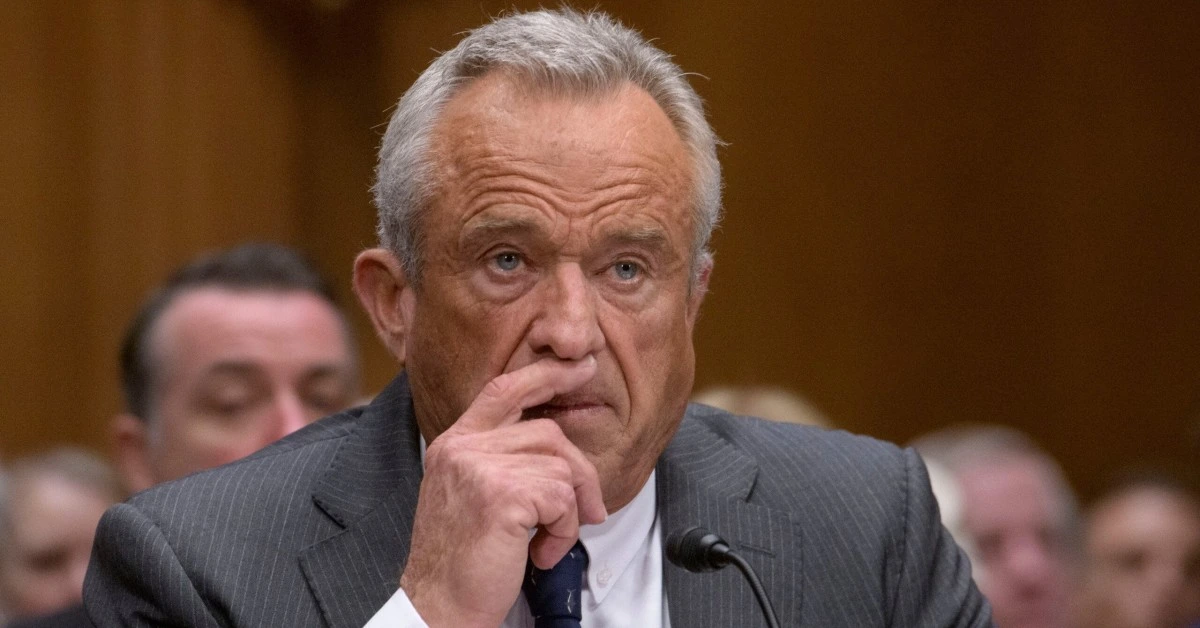
USA – Robert F. Kennedy Jr.’s confirmation as Secretary of Health and Human Services (HHS) encountered fresh hurdles during a Senate confirmation hearing on Thursday.
Bill Cassidy, Chairman of the Senate Health, Education, Labor, and Pensions (HELP) Committee, expressed doubts about voting for Kennedy due to his past criticism of vaccines.
Cassidy, a medical doctor, questioned whether Kennedy could change his stance on vaccines, given his long history of opposing them.
“I’ve got to figure that out for my vote,” Cassidy said, noting that as a member of the Senate Finance Committee, his vote is crucial for advancing Kennedy’s nomination.
Kennedy’s confirmation hearing turned into a grueling examination of his past beliefs about vaccine safety and his statements about vaccines causing autism.
During the hearing, Kennedy walked back some of his earlier comments, clarifying that he no longer holds the same views on vaccines.
He also avoided commenting on whether vaccines cause autism, even after repeated questioning by Cassidy.
Kennedy, who would oversee a US $1.7 trillion department including the CDC, FDA, and CMS, has vowed to focus on improving the nation’s health by addressing the mental health crisis and the increasing burden of chronic health conditions.
He also plans to tackle issues like unhealthy food and environmental pollutants, along with the high cost of drugs.
Cassidy’s concerns and questions
Cassidy, who has a background in medicine, raised particular concerns about Kennedy’s views on vaccines.
He specifically questioned Kennedy about the safety of the measles and Hepatitis B vaccines, asking if Kennedy could reassure parents that these vaccines do not cause autism.
“Will you reassure mothers unequivocally and without qualification, that the measles and hepatitis B vaccines do not cause autism?” Cassidy asked.
Kennedy responded, “If the data is there,” but Cassidy insisted on a clear “yes or no” answer, citing his own experience with the Hepatitis B vaccine.
Later, Cassidy challenged Kennedy to prove that he could move beyond his past vaccine views and become a strong advocate for public health.
Cassidy warned that Kennedy’s actions as HHS Secretary could influence President Trump’s legacy, urging him to focus on rebuilding trust in public health institutions.
Controversial statements on COVID-19 vaccines
During the hearing, Kennedy also faced scrutiny for his statements about the COVID-19 vaccines.
In a heated exchange with Senator Bernie Sanders, Kennedy questioned the success of the COVID-19 vaccine, claiming that the United States lacks an adequate surveillance system to determine its effectiveness.
Sanders responded, calling Kennedy’s comments “really problematic” as they contradicted widely accepted research showing that the vaccines saved millions of lives.
Additionally, Kennedy’s controversial statements about race and vaccines were addressed by Senator Angela Alsobrooks.
Kennedy had previously stated that Black people have a “better” immune system than white people, which prompted a strong backlash.
Alsobrooks, who is African American, sharply criticized Kennedy’s views, calling them “dangerous.”
Other remarks by Kennedy
In other parts of the hearing, Kennedy made several statements that further raised concerns. He described the U.S. vaccine safety data systems as “broken” and claimed that the CDC keeps raw data locked away, preventing independent scientists from reviewing it.
He also praised GLP-1 weight loss drugs but cautioned that they should not be the first-line treatment for obesity.
Kennedy pledged to give up any legal fees he might earn from anti-HPV vaccine lawsuits and denied ever calling Lyme disease a “biological weapon,” despite previous comments to the contrary.
Kennedy’s vision for health reform
Kennedy also highlighted his background as an environmental lawyer, focusing on his work with farmers and fishermen along the Hudson River.
He vowed to combat the obesity crisis and improve the nation’s food system, blaming processed foods and environmental pollutants for the rising rates of obesity in the U.S. Kennedy believes that these issues represent an “existential threat” to public health.
However, it remains uncertain how much progress Kennedy could make in advancing such an agenda, especially given the strong influence of the food and pharmaceutical industries in Trump’s administration.
Despite this, Kennedy’s focus on health reform has resonated with some senators, particularly his commitment to addressing environmental contamination and the high cost of drugs.
XRP HEALTHCARE L.L.C | License Number: 2312867.01 | Dubai | © Copyright 2025 | All Rights Reserved